Swedish News:
Religious counseling for youth. Gevalia: a long expected success. Highest number of refugees since 2003. Veiled women thrown out of court. Where are the house sparrows? Unsuitable weapon owners go unreported
-
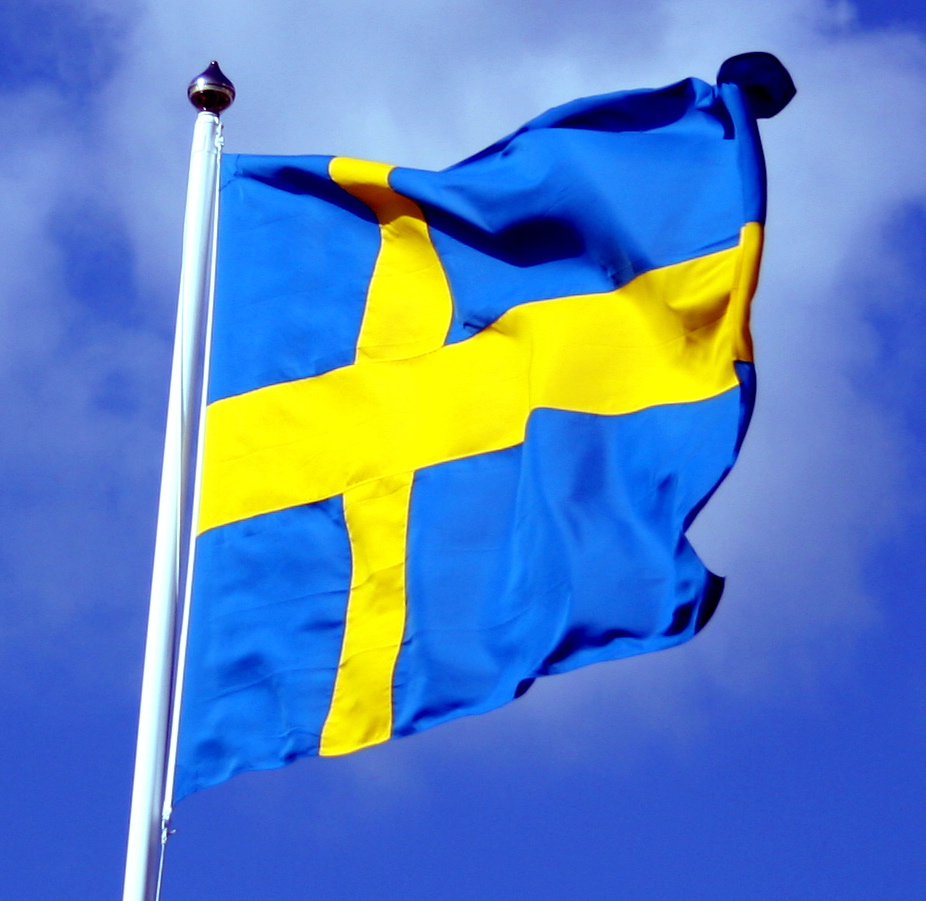 In Europe, the asylum petitions increased the most in the Nordic countries. The five Nordic countries received 61,900 petitions last year, a nearly 40% percent increase, according to the UN’s report Asylum Trends 2012. Sweden received the most asylum applications, numbering 43,900. After Malta, Sweden has the most asylum seekers compared to population size: 16.4 applications per 1000 inhabitants. Photo: Tage Olsin
In Europe, the asylum petitions increased the most in the Nordic countries. The five Nordic countries received 61,900 petitions last year, a nearly 40% percent increase, according to the UN’s report Asylum Trends 2012. Sweden received the most asylum applications, numbering 43,900. After Malta, Sweden has the most asylum seekers compared to population size: 16.4 applications per 1000 inhabitants. Photo: Tage Olsin -
-
Religious counseling for youth
Fryshuset in Stockholm is an activity center offering social projects and educational programs for young people. Now Fryshuset has opened Sweden’s first youth counseling center for religious questions and problems, according to sr.se. To be open about one’s faith in Sweden today is taboo, says Sudhagar Raghupathy, who took the initiative to the counseling center. The center is part of Fryshuset’s interreligious project titled “Tillsammans för Sverige” (Together for Sweden) and the idea is that it will act pretty much like any youth counseling center where young people can come and seek answers to their thoughts and questions regarding faith and spirituality. Sudhagar Raghupathy says it’s important to discuss religion today as more and more people with different cultural backgrounds live together and since that easily can lead to misunderstandings and religious phobias, which in turn can increase racism. “Many of these phobias stem from lack of knowledge,” Sudhagar Raghupathy says, “which is why this type of counseling may be beneficial, where representatives from different religions can talk about how you can interpret religions in different ways, that there is just not one way of Christianity or one way of Islam, but there are several interpretations around different issues.” -
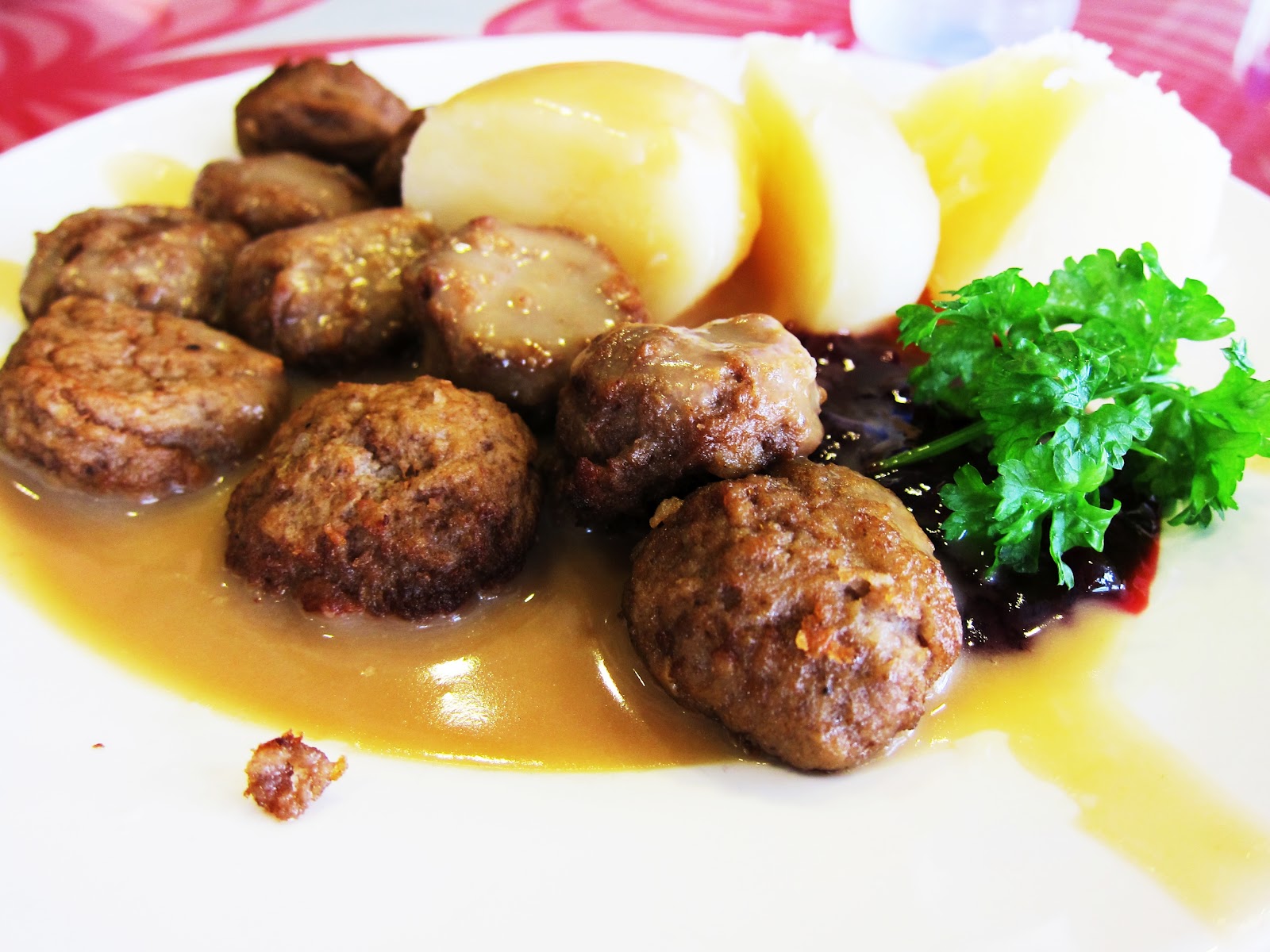 Ikea’s meatballs back on the menu, without horsemeat. Image: 2.bp.blogspot.com
Ikea’s meatballs back on the menu, without horsemeat. Image: 2.bp.blogspot.com -
-
Gevalia: a long expected success
It's been proven, Swedish coffee is the tastiest. Even in the U.S.. Six of ten coffee drinking Americans prefer Gevalia over Starbucks. In August, 2011, the grocery manufacturing giant Kraft Foods launched Gevalia in supermarkets in the U.S. after almost 25 years of working solely with online or mail order. In TV commercials Swedish “Johan” (actually an American actor by the name of Jon Prescott) talks about the importance of “fika”, or “feeka” as he pronounces it. And success has followed Johan/Jon. According to Kraft Foods a new study done by an independent party, shows that 60% of the coffee-drinking Americans prefer Gevalia over Starbucks. Only 34% prefer Starbucks, the rest could care less which coffee they drink. The study also brings new ammunition to the great coffee war, which broke out in 2011, when Kraft Foods decided to take on wider distribution of Gevalia instead of Starbucks, which was dropped from a distribution agreement the same year. Now the two companies are bitter enemies. In the U.S., Gevalia has been launched as a luxury coffee, which is not the status it enjoys in Sweden. At first, it was sold online only in America, but now Gevalia is available in many big supermarket chains. But Starbucks is not giving up that easily; prior to this, only faithful customers visiting the chain’s coffee shops were rewarded, but in May a new reward program will be introduced even for those customers who only buy packaged coffee in regular stores. And thus the coffee war continues…
None of the above mentioned brands can, needless to say, compete with the delicious Zoega's Coffee from southern Sweden - all according to our Editor - but, that's a different story. (Yes, the brand is available for online orders, at www.zpostorderusa.com -
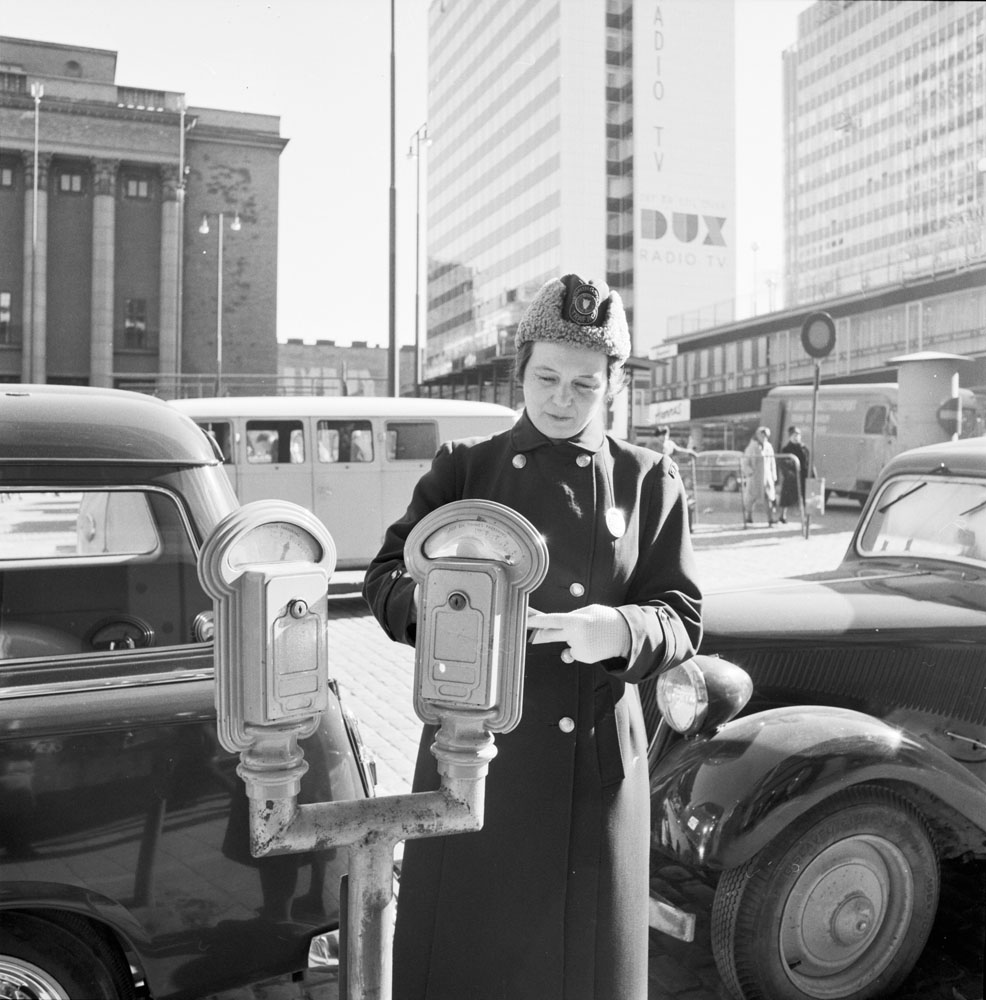 Charming “lapplisa” Sonja Gustavsson in Stockholm 1961. Can Göteborg do as good as that? Photo courtesy of Stockholmskallan.se
Charming “lapplisa” Sonja Gustavsson in Stockholm 1961. Can Göteborg do as good as that? Photo courtesy of Stockholmskallan.se -
Highest number of refugees since 2003
The conflict in Syria has led to the highest number of asylum seeking refugees since 2003, according to reports from UNHCR, the UN Refugee Agency. And Sweden is one of the most common countries in which to apply for asylum. Last year the number of refuges seeking asylum in the 44 industrialized countries reporting to the UN increased 8 percent to 479,300—the highest number since 2003, but much lower than the number around the turn of last century or in the early 1990s. The most common country in which to apply for asylum is the USA, with 17 percent asylum seekers, followed by Germany with 13 percent, France with 11 percent, then Sweden with 9 percent. Sweden is also the country that receives the second most asylum applications compared to population size after Malta. The biggest reason for the global increase in asylum-seekers is the conflict in Syria, which has led 24,800 people to seek asylum in industrialized countries, an increase of 191 percent since 2011, and one that makes Syria the second most common refugee country after Afghanistan. -
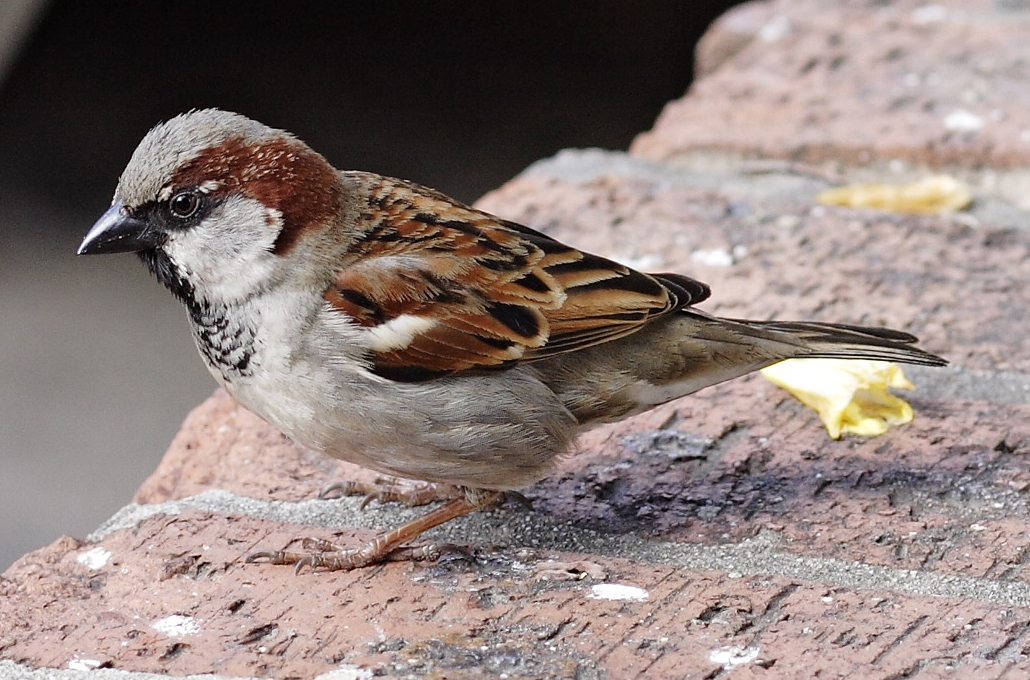 “Gråsparven” (known as the house sparrow in English) is getting less common in Sweden due to an advanced farming system. The small bird is of the sparrow family and found in most parts of the world. In the north and the rest of western Europe, the house sparrow has traditionally been thought of as an ill-boding bird that brings unhappiness to people. In France, it was thought the house sparrow was made by the devil, and in many parts of Sweden there are sayings about house sparrows causing bad weather and even deaths. Image: Male house sparrow, wikipedia.
“Gråsparven” (known as the house sparrow in English) is getting less common in Sweden due to an advanced farming system. The small bird is of the sparrow family and found in most parts of the world. In the north and the rest of western Europe, the house sparrow has traditionally been thought of as an ill-boding bird that brings unhappiness to people. In France, it was thought the house sparrow was made by the devil, and in many parts of Sweden there are sayings about house sparrows causing bad weather and even deaths. Image: Male house sparrow, wikipedia. -
Veiled women thrown out of court
Three women were thrown out of a courtroom in Goteborg because they were wearing fully covering veils. Says one of the women to dagensjuridik.se: “I think one should and can look the way one wants to.” It was in October 2011 that the three Moslem women were denied entrance to the courtroom in Göteborg. They wanted to follow a negotiation regarding a remand to custody, but when they were sitting in the waiting room a guard came up to them and said the judge had decided they were not allowed to sit in the courtroom with reference to “the masking law,” according to a report on the dagensjuridik.se site. When the women entered the room anyway, the judge called a guard who turned them away, since he didn’t allow “fully masked people” in the courtroom. The women now demand 110 000 SEK ($17,000) in damages for insult and discrimination. “I feel I was unjustly treated in court,” one of the women said to the site. JO (Riksdagen Ombudsmän or The Ombudsmen for Justice) criticized the judge’s decision last fall. A person can be turned away from a trial if he or she threatens to disturb the order, but according to the women’s representative they did not pose such a threat. Their representative, Stellan Gärde, maintains that what happened is a violation of the freedom of religion. “The niqab (a cloth which covers the face as a part of a sartorial hijab) is a religious garment. To wear religious garments is for many people central in their religious practice,” he said to dagensjuridik.se
Göteborg parking inspectors sent to charm school
Expect Göteborg parking inspectors to be really charming, because they’ve been sent to charm school. The goal? For Göteborg to have the nicest parking inspectors in Sweden. In a joint venture by Innerstaden Göteborg (Inner City Göteborg) and Securitas, it is meant that car drivers in Göteborg will meet the parking inspectors with the most charm, and also inspectors who can help them park their cars correctly. Another goal is to make the inner city of Göteborg safer, more attractive and accessible to all who live in, work in, or visit Sweden’s second city. -
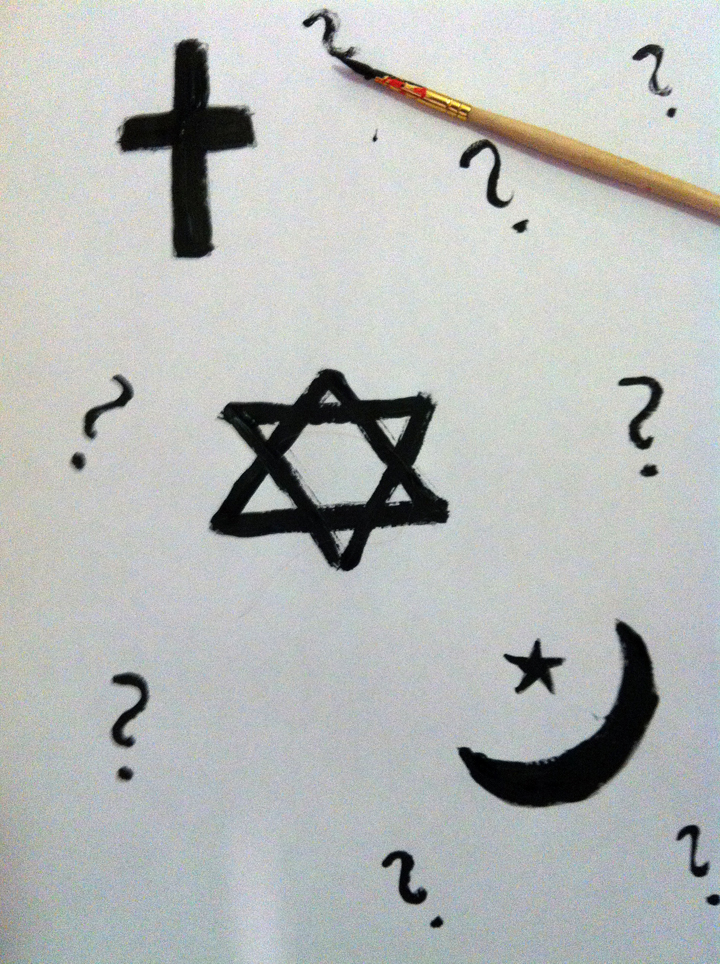 Fryshuset has opened Sweden’s first youth counseling center for religious questions and problems, according to sr.se.
Fryshuset has opened Sweden’s first youth counseling center for religious questions and problems, according to sr.se. -
Where are the house sparrows?
Scientists thought they were invincible. But the last decades have shown that the number of “gråsparvar” (house sparrows) has decreased by more than 50 percent in Sweden. Actually, the little bird—averaging about six inches in length and 30 grams in weight—is under threat of extinction in all of northwestern Europe. In Sweden, there’s barely a million of them today, quite a difference from the early 1970s. Maria von Post, a biologist at Lund University, wrote a doctoral thesis on house sparrows; she found that in many countries the bird’s whereabouts have not previously been charted, as the house sparrow “is everywhere” and has been considered invulnerable. “Which is why this is so fascinating—and a bit terrifying also,” she says. “Obviously it is not invincible at all. It has its limitations and is affected by what we do.” The exact reasons for the decrease in house sparrows are not yet known, but von Post’s study shows that in Sweden the decrease is connected to the development of agriculture. The increased specialization, with larger and fewer farms where a mix of animals and plants are quickly disappearing, present a serious handicap for the birds. “The job of the house sparrow is to look after insects. It is a part of a greater ecosystem, and a well-functioning ecosystem is prerequisite for a lasting agriculture,” says von Post. -
 “Johan”, aka Jon Prescott, in an ad for the Swedish Gevalia coffee in the US. According to their website Gevalia.com, Gevalia coffee has upheld the uncompromising standards put forth by its founder, Victor Theodor Engwall, since 1853. The business opened in the small seaside town of Gävle. Gevalia is the official coffee purveyor to the Royal Court of Sweden.
“Johan”, aka Jon Prescott, in an ad for the Swedish Gevalia coffee in the US. According to their website Gevalia.com, Gevalia coffee has upheld the uncompromising standards put forth by its founder, Victor Theodor Engwall, since 1853. The business opened in the small seaside town of Gävle. Gevalia is the official coffee purveyor to the Royal Court of Sweden. -
Unsuitable weapon owners go unreported
Swedish doctors have for the past 30 years been obliged to report unsuitable weapon owners to police. But they do it rarely, according to the government, which recently commissioned Rikspolisstyrelsen and Socialstyrelsen (the National Police and the National Board of Health and Welfare) to investigate why this obligation is being neglected. “We cannot have unsuitable people continue to be a threat,” says Beatrice Ask, Minister for Justice. In this case, unsuitable means people suffering from dementia, psychological diseases, serious vision problems or substance abuse. -
Passengers divided according to color
Passengers en route to Åland were divided and put into two different buses according to color – one bus for “Swedes” and one bus for “people with foreign looks”, according to Dagens Nyheter. “It was as if we were on our way to Arlanda Airport to be deported,” Samer, one of the travelers, says to the newspaper. “When me and my brother and a friend were leaving (…) we were placed in a bus where we soon discovered that everyone had a ‘foreign’ look. When we looked out the window we saw that all those who looked ‘Swedish’ were boarding another bus,” Samer says. Samer, who was born in Sweden, studies on Åland with his brother Ahmad and they say that the bus driver pointed the way to the travelers. “He led us to the bus and our first thought was that this is good service,” says Ahmad to Aftonbladet. Samer finally spoke to the bus driver: “We felt insulted, offended and discriminated against. The fact is we felt as if we were going to Arlanda to be deported from Sweden,” Samer says to Dagens Nyheter. The bus driver maintained that he had not divided the passengers according to skin color, but rather as to who had prepaid tickets. “But neither my brother nor I had prepaid tickets,” says Ahmad. “When my brother asked if he could get on the other bus, the driver said that there were certain rules and if (my brother) didn’t like that, he might as well step off the bus.” Ahmad says that since he and his brother had to catch the ferry to Åland, where they both study, they had no choice but to stay on the bus. He is shocked at the incident. “We’ve never experienced anything like this in Sweden,” he says. -
-
